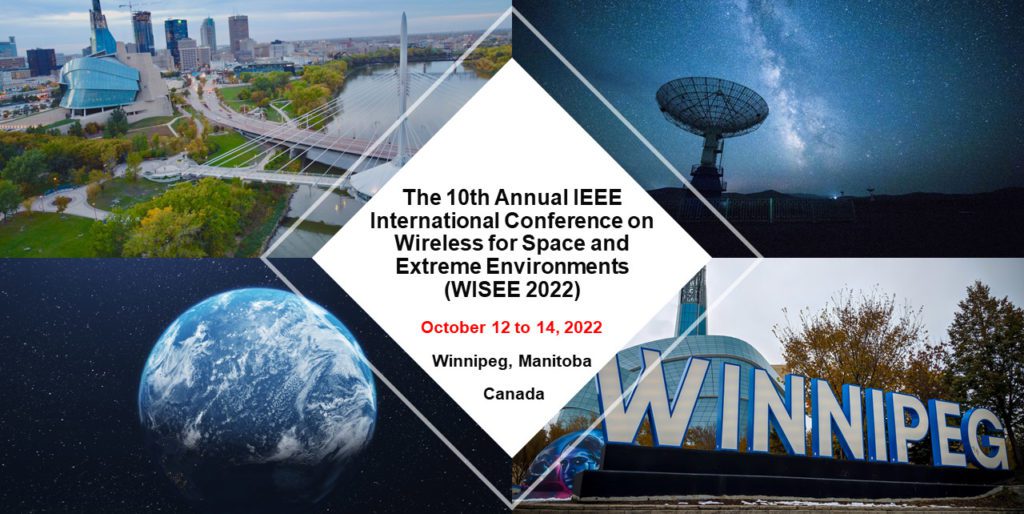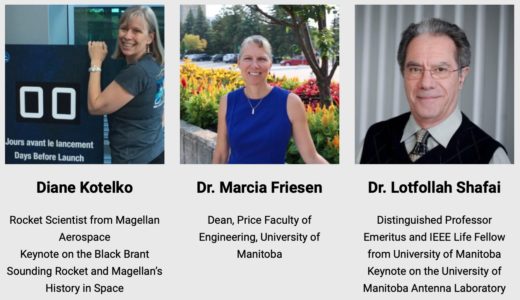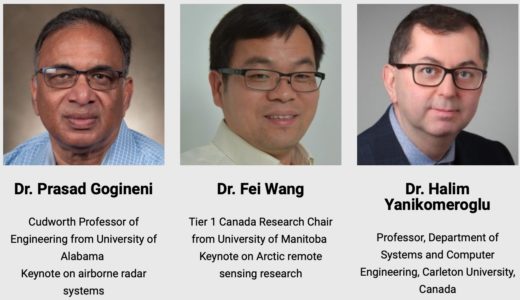The 10th Annual IEEE International Conference on Wireless for Space and Extreme Environments (WISEE 2022)
Conference Dates: October 12 to 14, 2022
Conference Location: Winnipeg, Manitoba, Canada
Early Registration End: September 15, 2022
Spaceflight involves critical sensing and communication in extreme environments such as planetary surfaces, space vehicles, and space habitats. The many challenges faced in space sensing and communication are extremely diverse and overlap significantly with those found in many terrestrial examples of extreme environments such as extreme hot or cold locations, extreme high- or low-pressure environments, critical control loops in aircraft and nuclear power plants, high-speed rotating equipment, oil/gas pipelines and platforms, etc. All of these environments pose significant challenges for radio-frequency or optical wireless sensing and communication and will require the application of a broad range of state of the art technologies in order to generate reliable and cost effective solutions. Although the specific challenges vary significantly from the environment to environment, many of the solutions offered by sensing, communication, and statistical signal processing technologies can be applied in multiple environments, and researchers focusing on space applications can benefit greatly from understanding the problems encountered and solutions applied in alternative environments.
This IEEE conference will bring together investigators from the National Aeronautics and Space Administration (NASA), the Canadian Space Agency (CSA), the European Space Agency (ESA), and other space agencies, along with aerospace and space defense industries and academic researchers, in an effort to understand and solve the emerging problems facing wireless sensing and communication in space and related extreme environments.
Workshops
Space-Terrestrial Internetworking (under the DTN umbrella)
The Space-Terrestrial Internetworking (STINT) Workshops addresses emerging technical topics related to data exchange between and amongst space-based and terrestrial network nodes. Such communications systems accept space assets as first-class nodes performing common network functions including stateful packet inspection, routing, management, and security.
Bringing together some of the most influential members of the field of data transfer between space and terrestrial nodes via delay-tolerant networks with time-varying topologies, STINT seeks contributions with a clear focus on packetized, multi-path, and multi-hop data exchange between and among space-based and terrestrial (plus planetary) network nodes.
Space Solar Power (SSP)
This workshop offers a forum for researchers, developers, and policy-makers to discuss SSPtechnologies, to advance the state of the art, to discuss supporting and related technical issues, and to take necessary actions. Accepted papers will be published at IEEExplore and presented at the workshop. The workshop accepts abstracts + talks and papers + talks. Papers should be submitted online and follow WiSEE 2021 format and submission approach.
Small Sats in Space
Over the past few decades, SmallSats have played a major role in Canada through scientific, Earth-observation, and commercial missions. The “SmallSats in Canada” workshop invites Canadian researchers and engineers to present both lessons learned from previous missions and technological advancements for current and future missions. We welcome presentations on power, attitude control, autonomous operations, communication subsystems, and sensor technologies for operating in extreme environments both in low-Earth-orbit and beyond. In particular, we encourage participation from students working on the Canadian CubeSat Project and Canadian Satellite Design Challenge.





